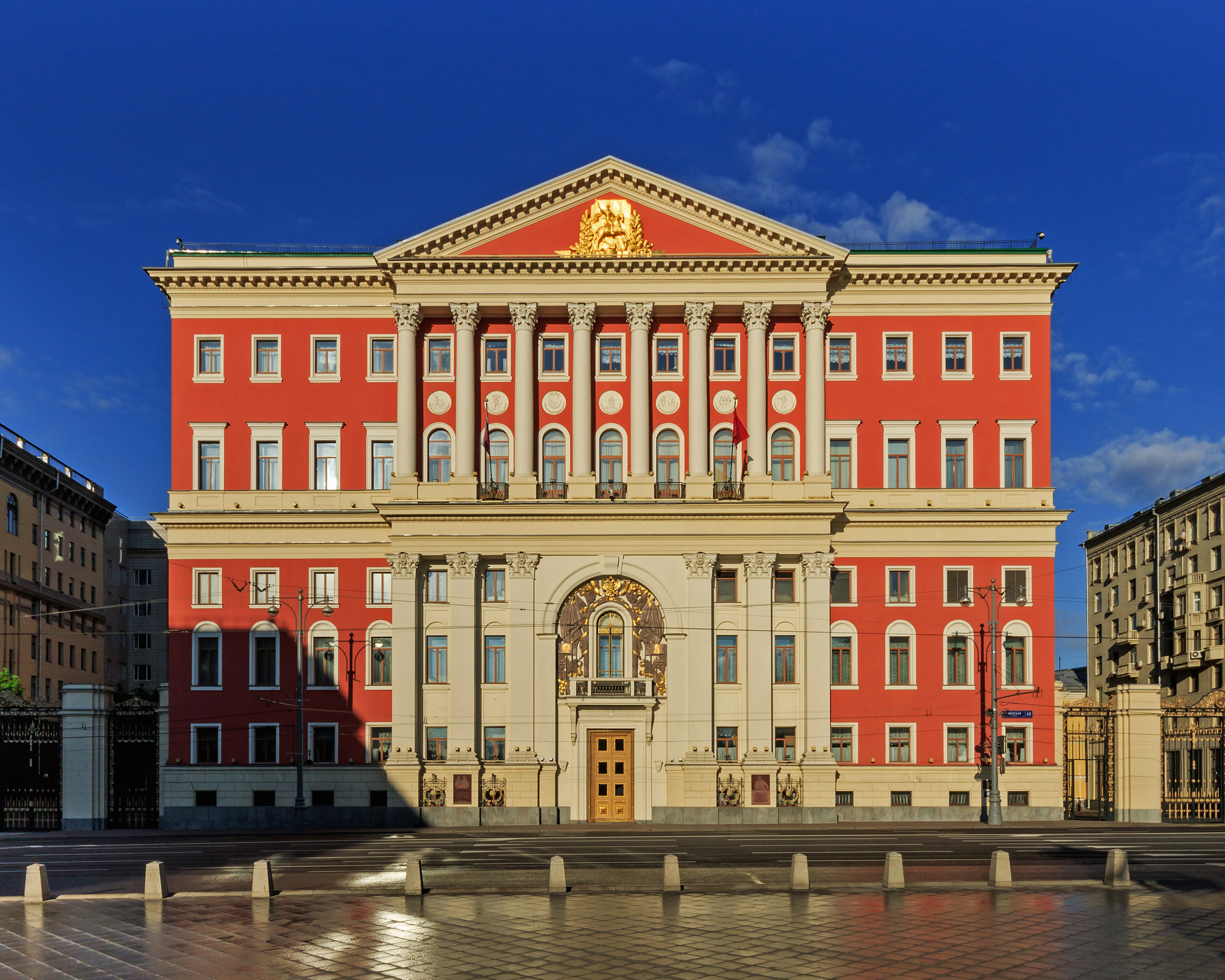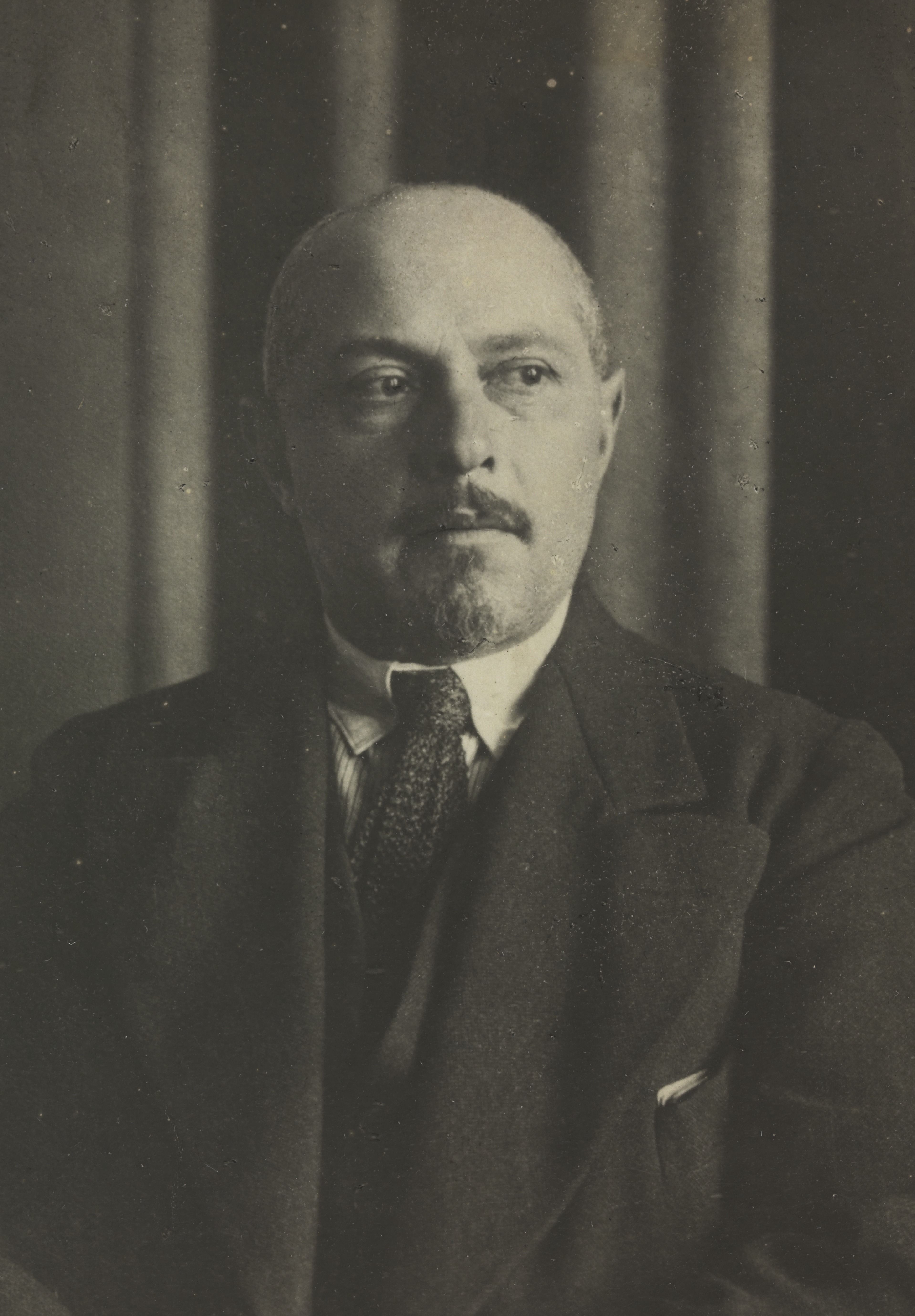|
Mossovet
The Mossoviet (Russian: Моссовет), an abbreviation of Moscow Soviet, (Московский Совет) was established following the February Revolution . Initially it was a parallel, shadow city administration of Moscow, Russia run by left-wing parties. Following the October Revolution it became the city administration of Moscow throughout the Soviet period (1918–1991). Initial period The first meeting of the Moscow Soviet of Workers’ Deputies occurred on 1 March, 1917. The meeting was initially attended by 52 delegates from various factories, cooperative societies and trade unions. However when the meeting was reconvened in the evening after a short adjournment, the meeting had swollen to over six hundred delegates. An executive committee of 44 members was created under the leadership of Lev Khinchuk a member of the Menshevik faction of the Russian Social Democratic Labour Party The Russian Social Democratic Labour Party (RSDLP; in , ''Rossiyskaya sotsial-demok ... [...More Info...] [...Related Items...] OR: [Wikipedia] [Google] [Baidu] |
1917 Establishments In Russia
Events Below, the events of World War I have the "WWI" prefix. January * January 9 – WWI – Battle of Rafa: The last substantial Ottoman Army garrison on the Sinai Peninsula is captured by the Egyptian Expeditionary Force's Desert Column. * January 10 – Imperial Trans-Antarctic Expedition: Seven survivors of the Ross Sea party were rescued after being stranded for several months. * January 11 – Unknown saboteurs set off the Kingsland Explosion at Kingsland (modern-day Lyndhurst, New Jersey), one of the events leading to United States involvement in WWI. * January 16 – The Virgin Islands, Danish West Indies is sold to the United States for $25 million. * January 22 – WWI: United States President Woodrow Wilson calls for "peace without victory" in Germany. * January 25 ** WWI: British armed merchantman is sunk by mines off Lough Swilly (Ireland), with the loss of 354 of the 475 aboard. ** An anti-prostitution drive in Prostitution in t ... [...More Info...] [...Related Items...] OR: [Wikipedia] [Google] [Baidu] |
Ispolkom Mossoveta
The Executive Committee of the Petrograd Soviet, commonly known as the Ispolkom (russian: исполком, исполнительный комитет, literally "executive committee") was a self-appointed executive committee of the Petrograd Soviet. As an antagonist of the Russian Provisional Government, after the 1917 February Revolution in Russia, the Ispolkom became a second center of power. It was dissolved during the Bolshevik October Revolution later that year. The Ispolkom are known for the controversial "Order No 1" (and 3) which stipulated that all military units should form committees like the Petrograd Soviet and that the military from every ''political perspective'' should not contradict the Ispolkom. The socialists at the Petrograd Soviet feared that officers were the most likely counter revolutionary elements and the intention of the Order was to limit their power. These orders rendered the officers powerless at the Russian front lines of World War I, which led to c ... [...More Info...] [...Related Items...] OR: [Wikipedia] [Google] [Baidu] |
Legislatures Of The Soviet Union
A legislature is an deliberative assembly, assembly with the authority to make laws for a Polity, political entity such as a Sovereign state, country or city. They are often contrasted with the Executive (government), executive and Judiciary, judicial powers of government. Laws enacted by legislatures are usually known as primary legislation. In addition, legislatures may observe and steer governing actions, with authority to amend the budget involved. The members of a legislature are called legislators. In a democracy, legislators are most commonly popularly Election, elected, although indirect election and appointment by the executive are also used, particularly for bicameralism, bicameral legislatures featuring an upper chamber. Terminology The name used to refer to a legislative body varies by country. Common names include: * Assembly (from ''to assemble'') * Congress (from ''to congregate'') * Council (from Latin 'meeting') * Diet (from old German 'people') * Estate ... [...More Info...] [...Related Items...] OR: [Wikipedia] [Google] [Baidu] |
Chairpersons Of The Executive Committee Of Mossovet
The chairperson, also chairman, chairwoman or chair, is the presiding officer of an organized group such as a board, committee, or deliberative assembly. The person holding the office, who is typically elected or appointed by members of the group, presides over meetings of the group, and conducts the group's business in an orderly fashion. In some organizations, the chairperson is also known as ''president'' (or other title). In others, where a board appoints a president (or other title), the two terms are used for distinct positions. Also, the chairman term may be used in a neutral manner not directly implying the gender of the holder. Terminology Terms for the office and its holder include ''chair'', ''chairperson'', ''chairman'', ''chairwoman'', ''convenor'', ''facilitator'', '' moderator'', ''president'', and ''presiding officer''. The chairperson of a parliamentary chamber is often called the ''speaker''. ''Chair'' has been used to refer to a seat or office of authority s ... [...More Info...] [...Related Items...] OR: [Wikipedia] [Google] [Baidu] |
1993 Disestablishments In Russia
File:1993 Events Collage.png, From left, clockwise: The Oslo I Accord is signed in an attempt to resolve the Israeli–Palestinian conflict; The Russian White House is shelled during the 1993 Russian constitutional crisis; Czechoslovakia is peacefully dissolved into the Czech Republic and Slovakia; In the United States, the ATF besieges a compound belonging to David Koresh and the Branch Davidians in a search for illegal weapons, which ends in the building being set alight and killing most inside; Eritrea gains independence; A major snow storm passes over the United States and Canada, leading to over 300 fatalities; Drug lord and narcoterrorist Pablo Escobar is killed by Colombian special forces; Ramzi Yousef and other Islamic terrorists detonate a truck bomb in the subterranean garage of the North Tower of the World Trade Center in the United States., 300x300px, thumb rect 0 0 200 200 Oslo I Accord rect 200 0 400 200 1993 Russian constitutional crisis rect 400 0 600 200 Dis ... [...More Info...] [...Related Items...] OR: [Wikipedia] [Google] [Baidu] |
Matvey Kazakov
Matvey Fyodorovich Kazakov (russian: Матве́й Фёдорович Казако́в, 1738 – 7 November 1812) was a Russian Neoclassical architect. Kazakov was one of the most influential Muscovite architects during the reign of Catherine II, completing numerous private residences, two royal palaces, two hospitals, Moscow University, and the Kremlin Senate. Most of his works were destroyed by the Fire of 1812; they were later rebuilt with various degrees of alteration. Early years Kazakov was born in Moscow. His father was a government clerk and a former serf who earned his freedom by serving in the Navy. When Kazakov was twelve years old, he joined the architectural school of Dmitry Ukhtomsky, where he worked and studied until 1760. After a devastating fire in Tver in 1761, Kazakov was assigned to rebuild Tver as a junior architect under P.R. Nikitin, and dedicated seven years to this project. The Travel, or Transit, Palace was completed by Kazakov in 1767. Shadow ... [...More Info...] [...Related Items...] OR: [Wikipedia] [Google] [Baidu] |
Russian Social Democratic Labour Party
The Russian Social Democratic Labour Party (RSDLP; in , ''Rossiyskaya sotsial-demokraticheskaya rabochaya partiya (RSDRP)''), also known as the Russian Social Democratic Workers' Party or the Russian Social Democratic Party, was a socialist political party founded in 1898 in Minsk (then in Northwestern Krai of the Russian Empire, present-day Belarus). Formed to unite the various revolutionary organizations of the Russian Empire into one party, the RSDLP split in 1903 into Bolsheviks ("majority") and Mensheviks ("minority") factions, with the Bolshevik faction eventually becoming the Communist Party of the Soviet Union. History Origins and early activities The RSDLP was not the first Russian Marxist group; the Emancipation of Labour group had been formed in 1883. The RSDLP was created to oppose the revolutionary populism of the Narodniks, which was later represented by the Socialist Revolutionary Party (SRs). The RSLDP was formed at an underground conference in Minsk i ... [...More Info...] [...Related Items...] OR: [Wikipedia] [Google] [Baidu] |
February Revolution
The February Revolution ( rus, Февра́льская револю́ция, r=Fevral'skaya revolyutsiya, p=fʲɪvˈralʲskəjə rʲɪvɐˈlʲutsɨjə), known in Soviet historiography as the February Bourgeois Democratic Revolution and sometimes as the March Revolution, was the first of two revolutions which took place in Russia in 1917. The main events of the revolution took place in and near Petrograd (present-day Saint Petersburg), the then-capital of Russia, where long-standing discontent with the monarchy erupted into mass protests against food rationing on 23 February Old Style (8 March New Style). Revolutionary activity lasted about eight days, involving mass demonstrations and violent armed clashes with police and gendarmes, the last loyal forces of the Russian monarchy. On 27 February O.S. (12 March N.S.) the forces of the capital's garrison sided with the revolutionaries. Three days later Tsar Nicholas II abdicated, ending Romanov dynastic rule and the Russia ... [...More Info...] [...Related Items...] OR: [Wikipedia] [Google] [Baidu] |
Menshevik
The Mensheviks (russian: меньшевики́, from меньшинство 'minority') were one of the three dominant factions in the Russian socialist movement, the others being the Bolsheviks and Socialist Revolutionaries. The factions emerged in 1903 following a dispute within the Russian Social Democratic Labour Party (RSDLP) between Julius Martov and Vladimir Lenin. The dispute originated at the 2nd Congress of the RSDLP, ostensibly over minor issues of party organization. Martov's supporters, who were in the minority in a crucial vote on the question of party membership, came to be called ''Mensheviks'', derived from the Russian ('minority'), while Lenin's adherents were known as ''Bolsheviks'', from ('majority'). Despite the naming, neither side held a consistent majority over the course of the entire 2nd Congress, and indeed the numerical advantage fluctuated between both sides throughout the rest of the RSDLP's existence until the Russian Revolution. The split ... [...More Info...] [...Related Items...] OR: [Wikipedia] [Google] [Baidu] |
Lev Khinchuk
Lev Mikhailovich Khinchuk (16 November 1868, Poltava – 14 March 1944) was originally a member of the Menshevik faction of the Russian Social Democratic Labour Party (RSDLP) until 1919, when he applied for membership of the Russian Communist Party (Bolshevik). He was elected a member of the executive committee of the Saint Petersburg Soviet during the 1905 Russian Revolution The Russian Revolution of 1905,. also known as the First Russian Revolution,. occurred on 22 January 1905, and was a wave of mass political and social unrest that spread through vast areas of the Russian Empire. The mass unrest was directed again .... Following its defeat he was voted onto the executive committee of the 4th Central Committee of the RSDLP. References {{DEFAULTSORT:Khinchuk, Lev 1868 births 1944 deaths Mensheviks Bolsheviks ... [...More Info...] [...Related Items...] OR: [Wikipedia] [Google] [Baidu] |






